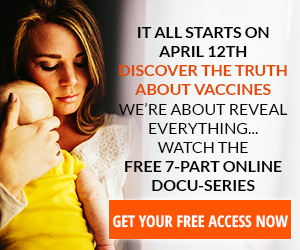
Bisphenol A (BPA) is ubiquitous in our environment. It is used to make polycarbonate plastic found in many toys, cooking utensils, and food packaging materials such as plastic containers and the lining of metal cans. It is also found in the paper used for credit card receipts that most of us touch on a daily basis. Since infants are rapidly developing and weigh so little, the effects of their exposure to BPA is much more critical than adults.
BPA may be measured in urine in parts per billion. Generally they range from 0.4 to 8 parts per billion in the average adult, indicating a chronic exposure to it. It is believed that BPA is metabolized and passes out of the body quickly, but because we are bombarded with exposures every day, there is a constant low dose exposure in most people.
Studies have shown that there are significant adverse effects on humans and the most vulnerable are fetuses, newborns and infants. As of December 2004, there were 115 published in vivo studies concerning low-dose effects of BPA, and 94 of these reported significant effects. In 31 publications with vertebrate and invertebrate animals, significant effects occurred below the predicted “safe” or reference dose of 50 μg/kg/day BPA).
BPA is considered to be an endocrine disruptor because it interferes with processes that involve the hormone estrogen. What does this mean?
It can cause some of the following effects on children:
- Early onset of female sexual maturity.
- Increased postnatal growth in both sexes.
- Increased prostate size in male offspring exposed in the womb.
- Decreased sperm production and fertility in males due to developmental exposure.
- Adverse affects on chromosome segregation in eggs.
- Altered immune function.
- Hyperactivity, aggressiveness and impaired learning.
In a baby, the key enzyme required to eliminate BPA that is found in the liver, has only 5% the activity as that of an adult. Scientists used a mathematical model to estimate how the amount of BPA in a baby’s blood correlates with an adult’s. They estimated that there is 11 times the amount of BPA in the blood of an infant that that of an adult.
Clearly, this suggests that babies are at much higher risk of adverse effects from BPA than adults. In September of 2010 Canada became the first country to declare BPA a toxic substance and banned its use in baby bottles. The European Union followed suit.
In March 2010 the EPA declared BPA a “chemical of concern”. As usual, US officials are dragging their feet about the dangers of a commercial product. Dr. Ana Soto of Tufts University School of Medicine said, “As a physician, endocrinologist and someone who has signed the Endocrine Society position paper on [concerns over human exposures to] endocrine disruptors, I’m very concerned about BPA exposures.” Indeed, she said that she thinks the risk posed by BPA in the diet “is a lot more serious than the FDA made it out to be.”
The FDA is now making recommendations to discard scratched baby bottles and infant feeding cups. But they are not actively telling you of other possible exposures such as, the fact that dental sealants applied to children’s teeth also contain large amounts of BPA which can leach into saliva.
While babies and infants are most at risk, BPA is so pervasive in our environment, all routes of exposure needs to be considered for children and adults as well.
Here’s what you can do:
- Avoid heating any foods in plastic.
- Avoid canned foods except those cans that are labeled BPA free.
- Avoid any plastic products (like bottles and sippy cups) for your child if it does not say “BPA free.”
- Avoid liquid baby formula as these are in cans and have been found to have BPA leached into the liquid from the can.
- Avoid plastic with the recycling label “letters PC #7.” Numbers 1,2, and 4 are safer if you must use plastic.
- Some metal water bottles do have BPA as a liner. Look for stainless steel without a liner, or BPA free plastic.
- Try not to touch credit card receipts or at least wash your hands afterwards.
- Never microwave in plastic (microwave ovens are not healthy to use anyway — a topic for another post).
Stainless steel ice cube trays (where to buy these non toxic trays for your baby’s food).
Perfect for freezing tiny portions of food for your baby and yourself as well! I remember my parents using these old fashioned metal ice cube trays — however back then, they were made out of aluminum. They actually work really well because it is easy to remove the cubes by pulling up the lever.
Stainless steel Baby Dish Set (where to buy stainless steel lunch boxes).
These are so much better than BPA laden plastic dishes!
What ideas do you have for avoiding BPA? Please leave a comment and share your ideas!










